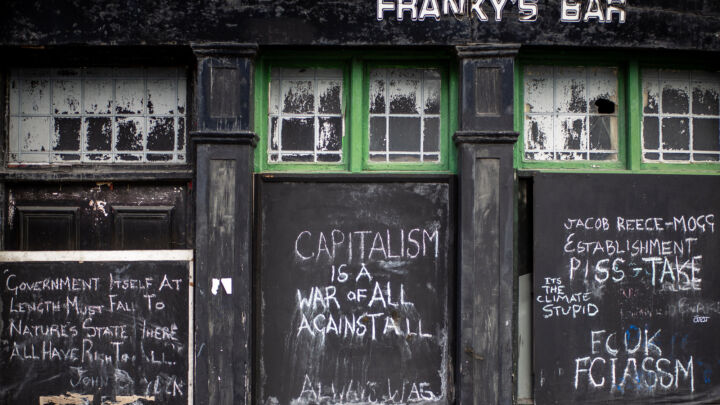Glastonbury, Metallica and the rise of e-belligerence

Want unlimited, ad-free access? Become a spiked supporter.
Do you remember back in the mid-1990s when many commentators put forward the theory that the new internet age would bring about an open-minded, free-thinking quasi-utopia? Information, they said, would hereafter transcend borders, evade state censorship and sidestep media filters: the twenty-first century would see an opening of minds and a new age of enlightenment.
How strange that the opposite seems to have happened. If anything, the politically correct ‘you can’t say that’ culture of the 1990s has become even more entrenched. One significant manifestation has been the burgeoning of online campaigns or petitions to have people or voices censored or banned – whether it be Page 3 of the Sun, Robin Thicke’s ‘Blurred Lines’, internet ‘trolls’, or the British National Party’s Nick Griffin from appearing on Question Time.
The latest victim of this petition culture is the Danish-Californian thrash-metal band Metallica, who are due to appear at this summer’s Glastonbury festival. However, since it emerged that Metallica’s lead singer, James Hetfield, is a keen bear-hunter, animal-rights activists have put up an online petition demanding Metallica be removed from the bill. The Facebook page ‘Remove Metallica from Glastonbury Festival for their Support of Bear Hunting’ has received more than 27,000 ‘likes’ since it was set up on 25 May. Needless to say, there has also been much indignation on Twitter.
Quite why Metallica were scheduled to play Glastonbury in the first place is a bit of a mystery. Thrash metal, which emerged in California in the early-1980s, combining punk with late-1970s new wave and British heavy metal, was a counterblast to the hippiedom and prog rock of the 1970s – the sort of soporific culture that Glastonbury remains one of the last bastions of. But there’s a more profound matter at hand. What’s with the profusion of online petitions demanding censorship?
I think the internet itself is the problem. Over the past 20 years a generation has emerged that no longer receives its information from newspapers, which contain a whole array of news, features and opinion that often challenge one’s views and prejudices. Instead, those who have opinions on worldy matters receive their news through carefully sourced threads on social media that only reinforce their prejudices. This is why twenty-somethings can be so censorious: they are not only indulged (not having their ‘self-esteem’ challenged in their teens) but they are unused to dealing with – and hostile to – people who have different opinions and different, ‘unprogressive’ lifestyles. The faceless nature of social media only heightens a general atmosphere of belligerence.
How strange that Glastonbury, the quintessence of hippiedom, should now come to embody our new age of intolerance. But then again, who was it that first said ‘never trust a hippy’?
Patrick West is a columnist for spiked.
You’ve hit your monthly free article limit.
Support spiked and get unlimited access.
Support spiked and get unlimited access
spiked is funded by readers like you. Only 0.1% of regular readers currently support us. If just 1% did, we could grow our team and step up the fight for free speech and democracy.
Become a spiked supporter and enjoy unlimited, ad-free access, bonus content and exclusive events – while helping to keep independent journalism alive.
Monthly support makes the biggest difference. Thank you.









Comments
Want to join the conversation?
Only spiked supporters and patrons, who donate regularly to us, can comment on our articles.